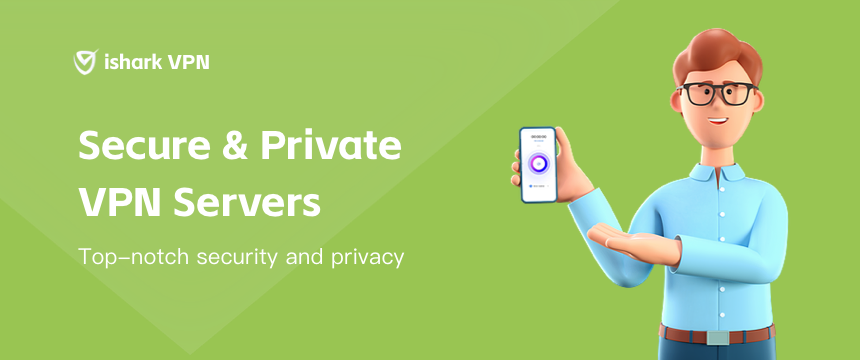VPN and Online Advertising Tracking: Safeguarding User Privacy and Reducing Personalized Ads
ishark blog article
In the digital era, online advertising has become an integral part of the internet experience.
However, users are increasingly concerned about the invasion of their privacy through online advertising tracking.
Online advertisers track users' browsing habits to deliver personalized ads, which can be intrusive and bothersome. Fortunately, Virtual Private Network (VPN) technology offers a solution to combat online advertising tracking, protecting users' privacy and personal information.
This article delves into how VPN can effectively block ad tracking, ensuring user privacy and reducing the interference of personalized ads.

I. Understanding Online Advertising Tracking
Cookies and Tracking Pixels: Online advertisers often use cookies and tracking pixels to monitor users' online activities.
Cookies are small data files stored on a user's device, while tracking pixels are tiny transparent images embedded in websites.
These tools allow advertisers to collect user information, such as browsing history and preferences, to deliver targeted ads.
Cross-Site Tracking: Cross-site tracking enables advertisers to follow users across different websites, creating a comprehensive profile of their online behavior.
This practice allows advertisers to deliver personalized ads based on users' interests and activities, but it also raises privacy concerns.
Behavioral Advertising: Behavioral advertising analyzes users' online behavior to predict their preferences and interests, serving them relevant ads.
While some users appreciate personalized ads, others find them intrusive and prefer to maintain their privacy.
II. How VPN Protects User Privacy from Online Advertising Tracking
IP Address Masking: VPN masks a user's real IP address by replacing it with the IP address of the VPN server.
This prevents advertisers from directly linking a user's online activities to their actual location and identity, thus increasing anonymity and privacy.
Encryption of Data Traffic: VPN encrypts users' internet traffic, making it challenging for advertisers and third parties to intercept and analyze data, including cookies and tracking pixels. This encryption adds an extra layer of security, safeguarding user privacy.
Ad Blocking and Malware Protection: Some VPN offer ad blocking and malware protection features.
By blocking ads and malicious scripts, VPN prevent tracking attempts and further enhance user privacy.
Server Location Options: Users can connect to VPN servers in different regions, effectively changing their virtual location.
This makes it difficult for advertisers to target users with location-specific ads, minimizing personalized advertising.
III. The Benefits of Reduced Personalized Ads
Enhanced User Experience: By reducing the number of personalized ads, users can enjoy a less intrusive and more seamless browsing experience, allowing them to focus on content that genuinely interests them.
Increased Privacy and Security: VPN ensure that users' online activities remain private and secure, protecting their personal information from advertisers and potential data breaches.
Bandwidth Conservation: Personalized ads can consume significant bandwidth, leading to slower loading times for websites.
By blocking these ads, VPN can help conserve bandwidth and improve overall internet speed.
IV. Choosing the Right VPN for Ad Tracking Protection
No-Log Policy: Users should opt for VPN providers that have a strict no-log policy, meaning they do not store any user data, ensuring complete privacy.
Ad Blocking Feature: VPN with built-in ad blocking capabilities are particularly useful for protecting against online advertising tracking.
Server Network: A VPN with a diverse and widespread server network allows users to access servers from different regions, increasing their ability to bypass personalized ad targeting.

Conclusion:
VPN technology offers an effective way to protect user privacy from online advertising tracking.
By masking IP addresses, encrypting data traffic, and blocking ads, VPN ensure that users can browse the internet with enhanced privacy and security.
Reduced personalized ads lead to a more enjoyable online experience, with fewer distractions and faster loading times. As users become more conscious of their online privacy, VPN will continue to play a crucial role in safeguarding user data and preserving their digital anonymity.









